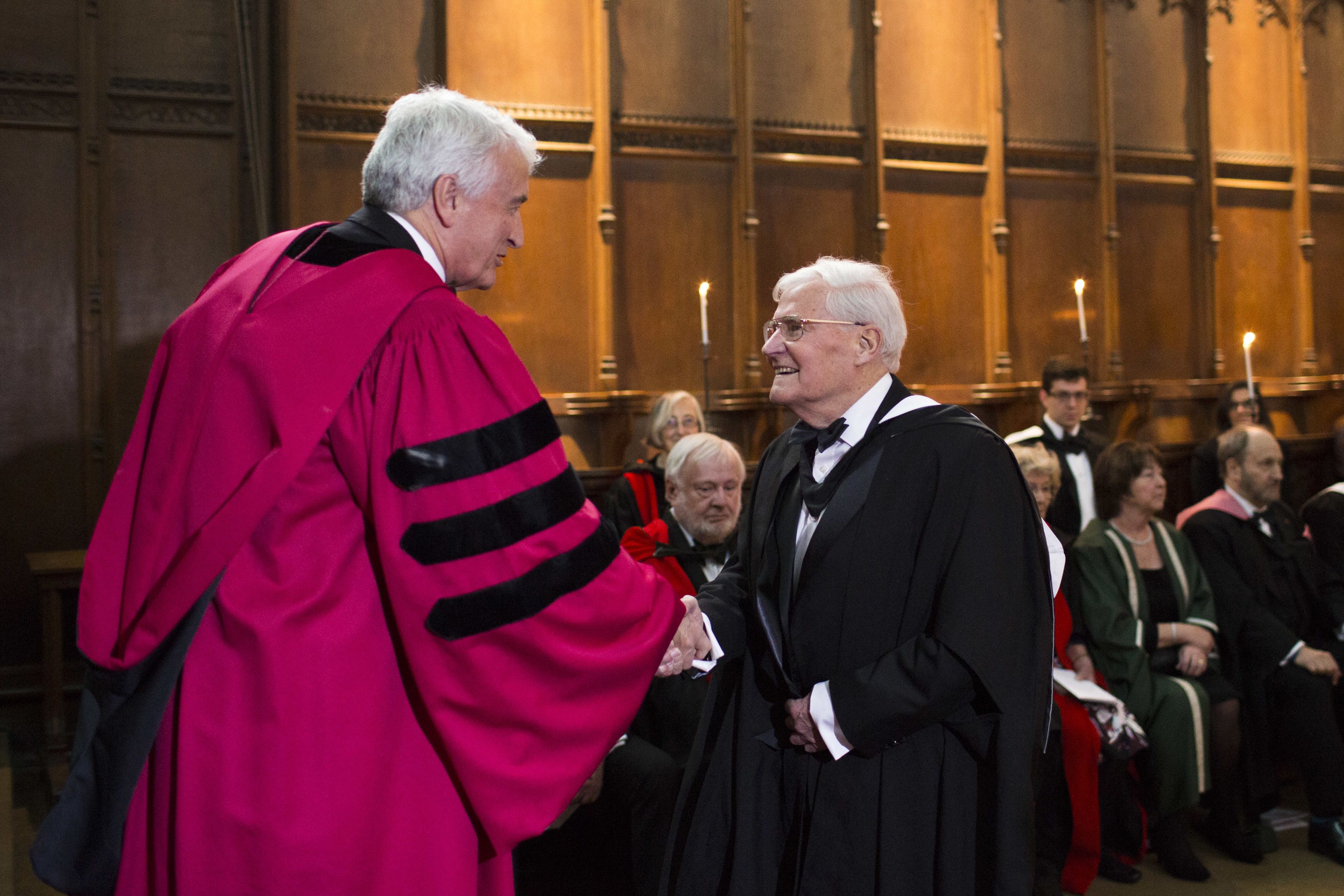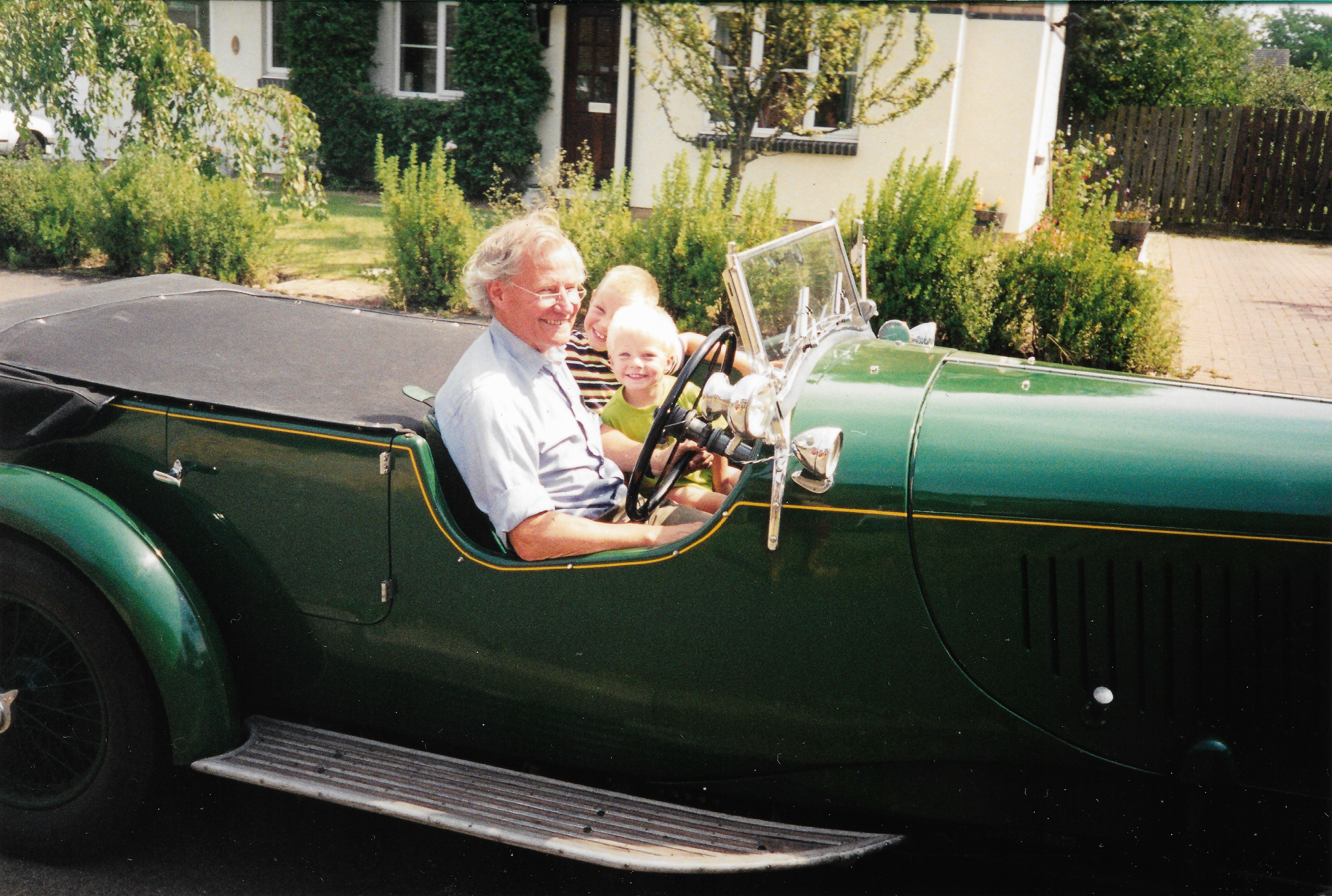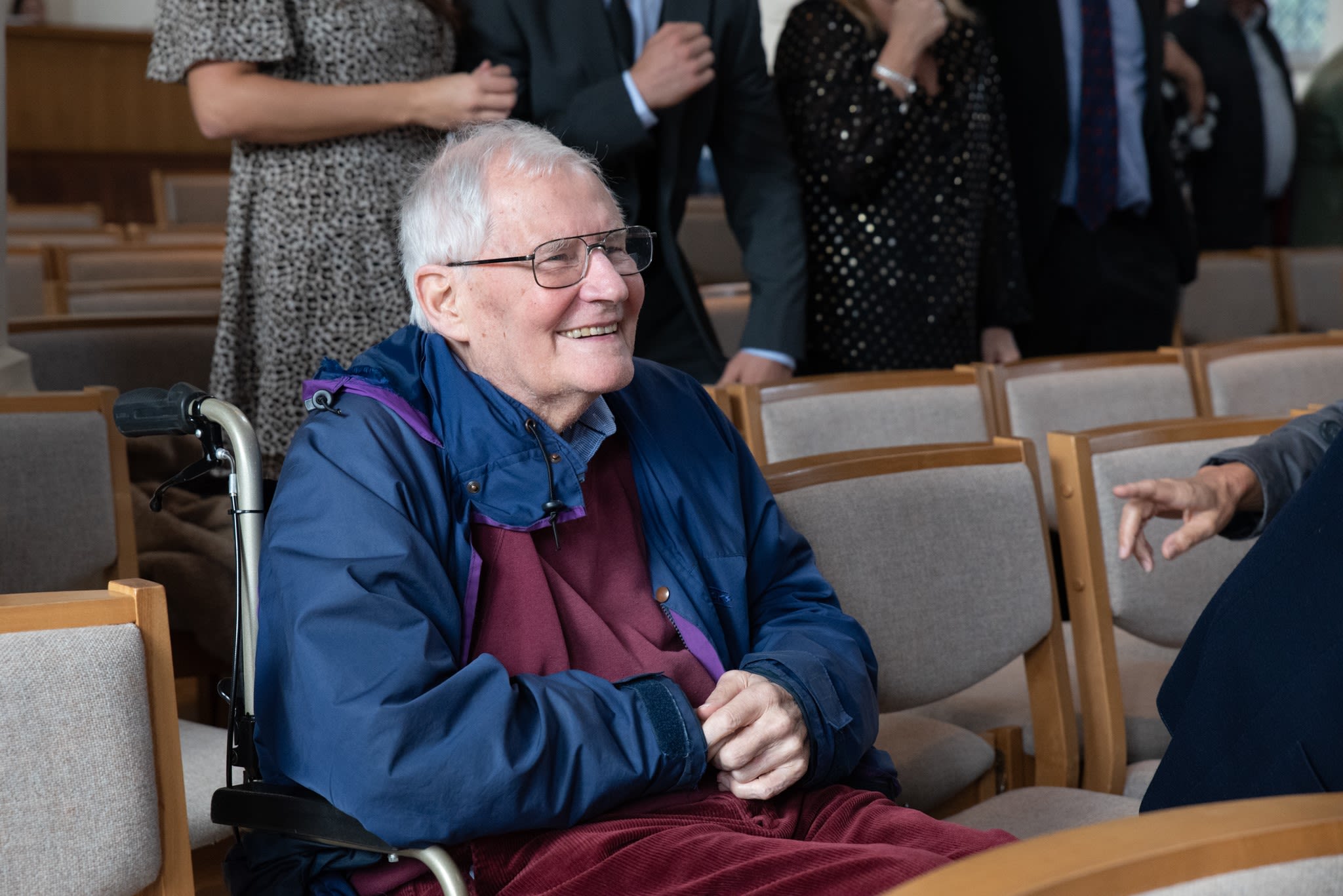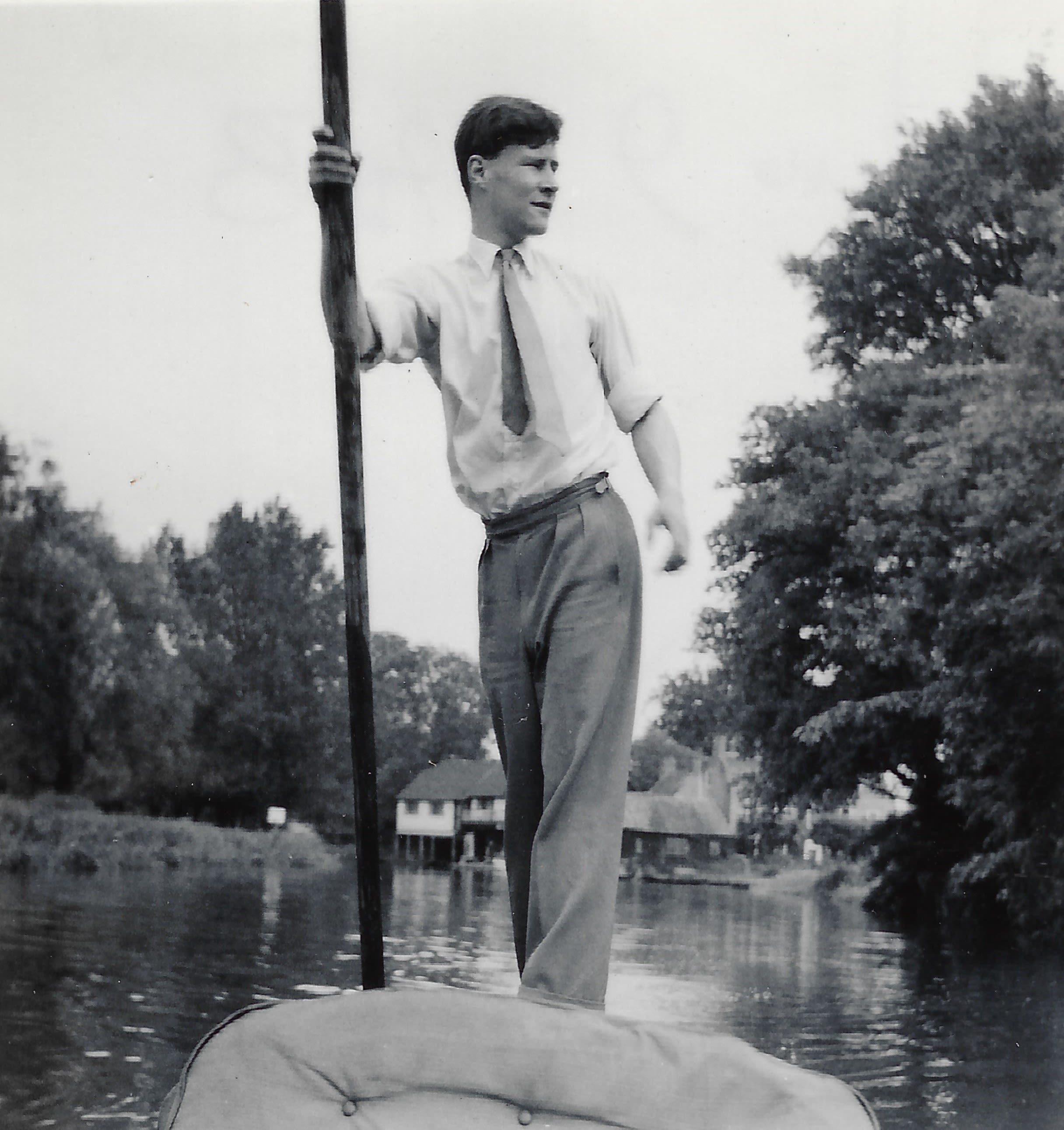John (Clive) P. Dalton
1936 - 2022
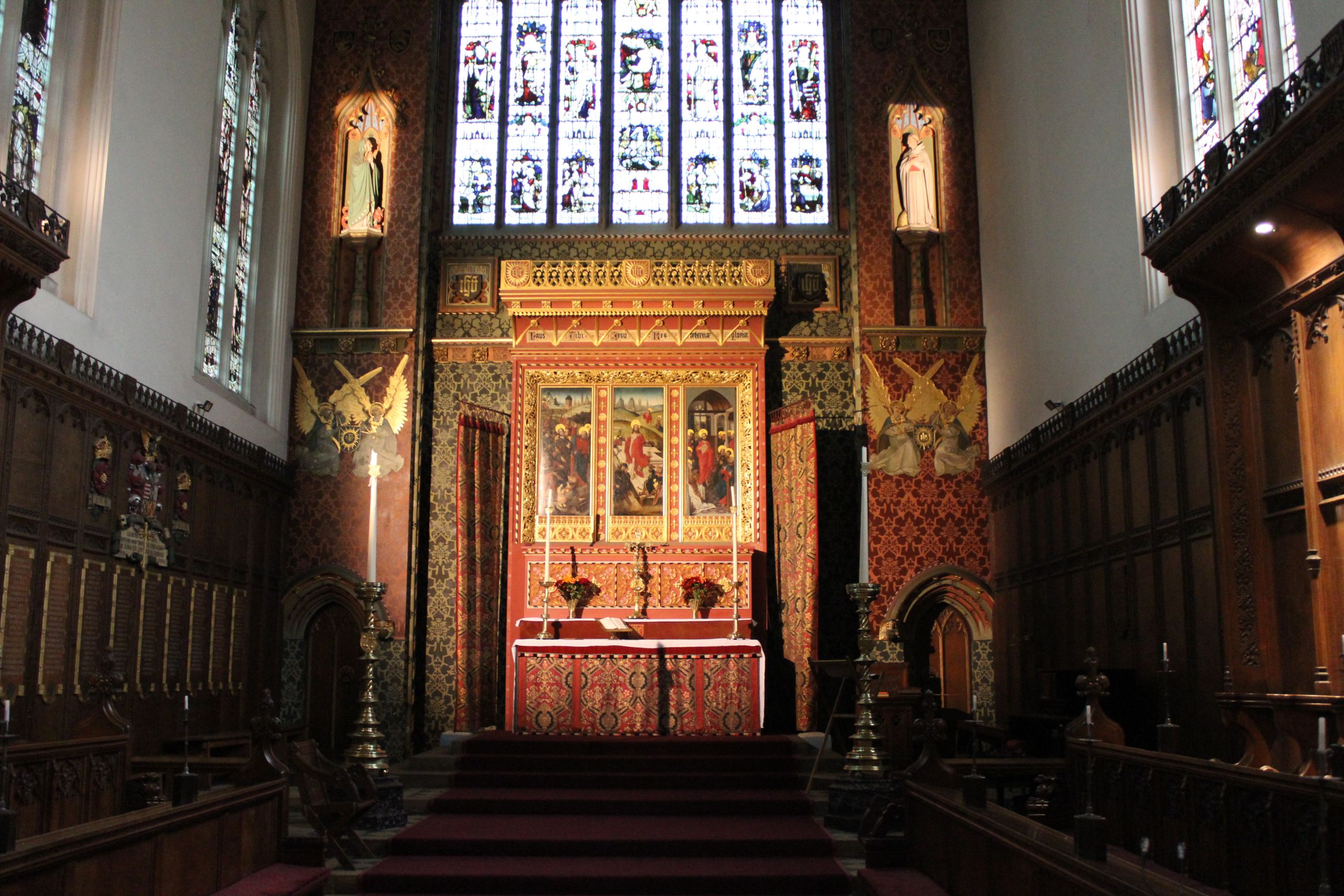
Clive Dalton was born on 14th January 1936. He passed away on 18th September 2022, aged 86, in Little Eversden, Cambridge. Clive read Mechanical Sciences at Queens' from 1956 to 1959.
Clive was a true engineer at heart. Brought up in Hove on the south coast, Clive attended Tonbridge School. Between 1954-56 he completed National Service in the Royal Signals at Catterick in North Yorkshire, meeting his future wife, Shirley, at that time.
In 1956 Clive took up his place at Queens’ to read Mechanical Sciences. He joined the University Automobile Club, initiating his interest in vintage motor cars. In his final year, he purchased his 1932 2-litre Lagonda from the former headmistress of the Perse School.
After a short period in Northampton, Clive returned to Cambridge for the rest of his life, living in Little Eversden. In 1971, he started a company in his own front room that eventually became Cambridge Insitu Ltd. Their first venture was to manufacture a new, unusual electronic thermometer for measuring the core temperature of people. Although the idea was sound, the device did not work in the way the inventor had imagined. Clive worked out how to correct this.
A friend then persuaded Clive to take up a contract for manufacturing strain gauged load cells using designs coming out of Cambridge University. In order to calibrate these devices, he was permitted to use the facilities of the Engineering Department. This brought Clive into contact with John Hughes and the late Peter Wroth, who were doing interesting work in the soil mechanics field. They had developed a novel tool for the insitu measurement of soil strength, stiffness and lateral geostatic stress. Clive acquiring the rights to manufacture these devices, known as “Cambridge self-boring pressuremeters”.
The instruments are now widely employed so engineers can design foundations for large buildings that are cheaper yet safer. For example, they were used for the British Library, the new Forth Crossing, the Second Severn Bridge, Crossrail, Changi Airport, HS2, on all the nuclear power projects in the UK, and all the off-shore windfarms.
Clive was an enthusiastic and generous teacher and many people have had the benefit of his considerable engineering knowledge. Hundreds of engineering students attended one of the equipment demonstrations he arranged in his garden. Clive was widely sought out as someone prepared to undertake one-off tasks for various Ph.D. students and research projects. Cambridge Insitu financially supported several doctorates.
Fifty years ago Clive knew that what he was making was important. That foresight is its own kind of genius. But Clive’s real talent was allowing others to find theirs. He made the space for people to discover of what they were capable, and encouraged them to achieve their potential. He was a very generous man.
Clive had a vast curiosity and an enormous range of other interests. He was musical and a competent pianist. He had a strong sense of duty and obligation. He was for many years active in local government, and was a committed governor to three local schools.
Clive’s beloved Lagonda needed a complete overhaul and was off the road until 1988. If parts were unavailable, he simply made them himself. The car was then much used, with Clive and Shirley using it to attend various meets and rallies around the UK and in Europe, as well as for more mundane local trips. He believed that such vehicles were there to be driven, not treated as museum pieces.
Probably Clive’s greatest pleasure was also the simplest. A good meal with friends and family, with interesting and amusing conversation long into the evening.
Clive is survived by his wife of over 60 years, Shirley, their sons John and David, four grandsons and two great grandsons.
John Dalton
November 2022
